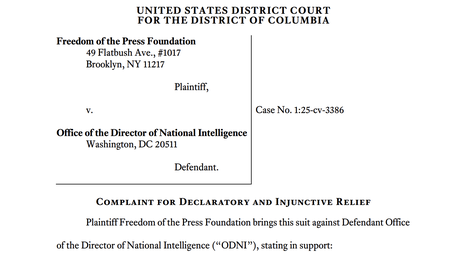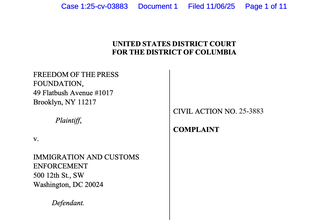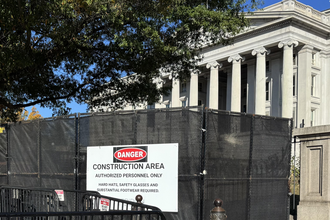Three new FPF FOIA suits target threats to transparency, press freedom


AP Illustration
The Freedom of Information Act gives the public a right to access government records.
The Freedom of Information Act is supposed to shed light on government activity by giving journalists and the public access to government records. But the law is in shambles. From endless delays in response time and unjustified refusals to ridiculously overbroad redactions, FOIA is plagued with problems.
We must fight back against the government’s refusal to comply with FOIA and urge Congress to reform the law and end backlogs of requests, reduce the number of exemptions, and overturn damaging court decisions.

Plus: Public records give the DOJ two black eyes this week

Plus: FOIA requests we filed this week and why we’re sharing

FOIA lawsuit targets ICE’s efforts to stop congressional oversight of detention facilities

Plus: The case for making public records-based reporting free

We spoke to Katie Drummond of Wired, Joseph Cox of 404 Media, and Lauren Harper of Freedom of the Press Foundation about the case for unpaywalling public records-based reporting

And how we are looking for answers

Plus: Tell Congress that FOIA must apply to ICE’s secret prisons

Plus: Secret law provides cover for more killings

David Cuillier explains how the ‘death of transparency’ affects us all, and how our public records laws must change.

Plus: There shouldn’t be secret law. Pam Bondi didn’t get the memo
Something went wrong and your email updates subscription could not be processed. Please visit our signup page and try again.
Thanks for helping us protect FOIA and the right of the press and public to know what the government is up to.
Share this message on social media: